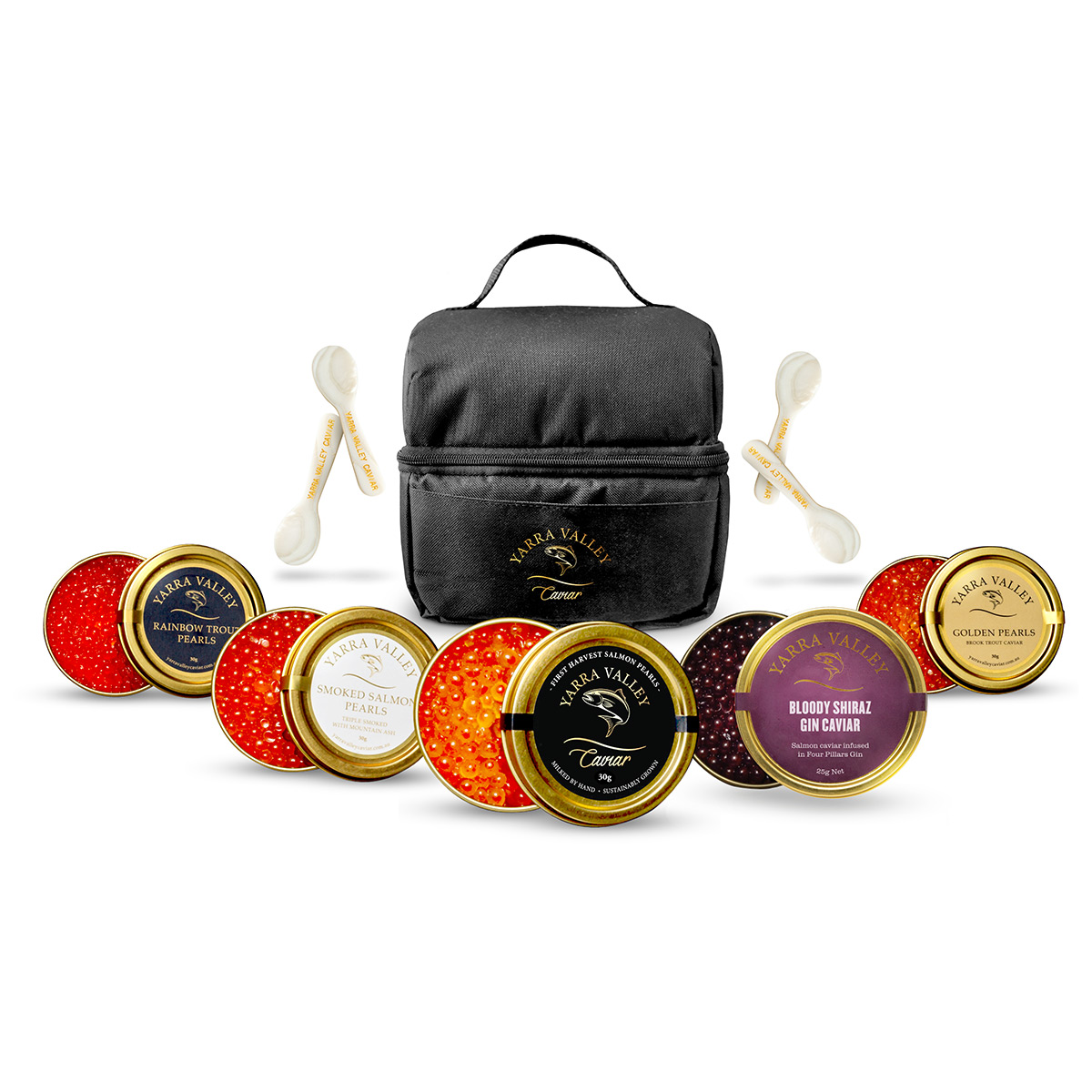We know what you’re thinking: how can the taste of fish eggs possibly be one of the most decadent, sophisticated and desirable food items on the globe? The answer is simple: the first thing you should know is that it doesn’t taste anything like you would imagine. Of course, taste is subjective and no amount of words can ever give justice to its delicious flavour.
Naturally, we encourage you to try it yourself. But in the meantime, prepare to be enlightened by what you can expect when it comes to this complex delicacy.
What gives caviar its taste?
While caviar comes from a fish, it should not taste super fishy or very salty. If it does, it’s not great quality, most likely stale and/or improperly handled. Caviar should taste more like ocean water, rather than straight fish. However, this will depend on the quality of the caviar.
Good caviar is soft and fresh, with a buttery richness when it lands on your palate. Keep in mind that the flavour is influenced by a few factors: the canning process, the species of sturgeon from which the eggs come, the water’s quality where the sturgeon swims, the food that the fish eats, and its age (more mature sturgeon will deliver the best flavour.)
What is the flavour of caviar?
It is said that there are 15 different flavours associated with caviar. While some common ways to describe the taste include “a breath of the sea, a pinch of salt, a smooth and nutty flavour that fills your nose”, any attempt to explain it will make the experience itself underwhelming.
Some caviar will have buttery, velvety or earthy notes, or even a slightly nutty flavour. In fact, you may not even notice some flavours unless you were expecting them. One thing can be sure: indulging in caviar is a sensory escape that incorporates both the taste and olfactory sensors.
How to taste caviar
To get the most out of your flavouring, there are four things to keep in mind when you taste caviar:
Don’t use metal spoons to scoop the caviar, as it changes the flavour. We recommend mother of pearl spoons
Try to accompany your caviar with slightly salted foods, such as buttered toast
Caviar should be served cold but not frozen
Dry champagne or vodka is best served with caviar
Above all, caviar should never be chewed. It should roll around on the tongue, with the pop of the eggs releasing a rich burst of flavour to be savoured.
Ready to treat your taste buds to caviar? Get started with our tasting pack, where you receive five different varieties of our freshest caviar in 30g jars.
